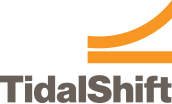IP 250 | Length: 1-2 days | 14 PDUs
Overview
The aim of project quality management is to ensure the project will satisfy the needs for which it was undertaken. Quality is the totality of characteristics of an entity that bear on its ability to satisfy stated or implied needs. In order to fulfill these needs, they must be clearly stated through project scope management. Quality must be distinguished from grade.
This workshop provides participants with an in-depth view of what it means to implement quality management within the project management process. The various quality management processes are presented within the framework of the project life cycle. Issues surrounding quality, such as the cost of quality, are examined, and steps and techniques are presented for each of the following processes:
- Plan Quality
- Perform Quality Assurance
- Control Quality
Additionally, Quality Improvement processes are outlined.
Participants receive instruction on how to employ many quality tools and models– such as the Kano model, the House of Quality, Fishbone Analysis, Process Flowchart, Quality Audits, Trend Analysis, Pareto Charts, and others. Then they have the opportunity to immediately apply many of the techniques using a case study.
Learning Objectives
Participants will learn how to:
- Identify which quality standards are relevant to the project and determine how to satisfy them
- Apply the planned, systematic quality activities to ensure that the project employs all processes needed to meet requirements
- Monitor specific project results to determine whether they comply with relevant quality standards and identifying ways to eliminate causes of unsatisfactory performance
Instructional Strategies
This workshop utilizes short lecture, guided discussion, and hands-on application activities in small teams. Team activities are debriefed by the instructor through occasional team presentations.
Audience
Project managers and aspiring project managers, project sponsors, team leaders, functional managers, and anyone who needs to successfully manage the quality of a product or service.
Prerequisites
None, although a course in project management basics is recommended.
Content Outline
MODULE 1: INTRODUCTION AND BACKGROUND
- Purpose
- Key Concepts and Context
- Definitions
- PMI Perspective Overview
MODULE 2: PLAN QUALITY
- Quality Planning Steps
- Key Inputs
- Quality Management Techniques – Kano Model, House of Quality, Cause and Effect Diagram and Process Flow Chart
- Components of Quality Management Plan
MODULE 3: CONTROL QUALITY
- Inputs and Outputs of Quality Control Processes
- Inspection and Reviews Techniques
- Statistical Sampling
- Trend Analysis
- Control Charts
- Pareto Diagrams
- Scatter Diagrams
- Development of a Quality Control Plan
MODULE 4: PERFORM QUALITY ASSURANCE
- Quality Assurance Steps
- Management Process
- Quality Audits
MODULE 5: QUALITY IMPROVEMENT
- Quality Improvement Guidelines
- Plan-Do-Check-Act Cycle
- Benchmarking
- Problem Solving
- PACE Model
MODULE 6: SUMMARY AND RE-CAP
- Review of Key Points
